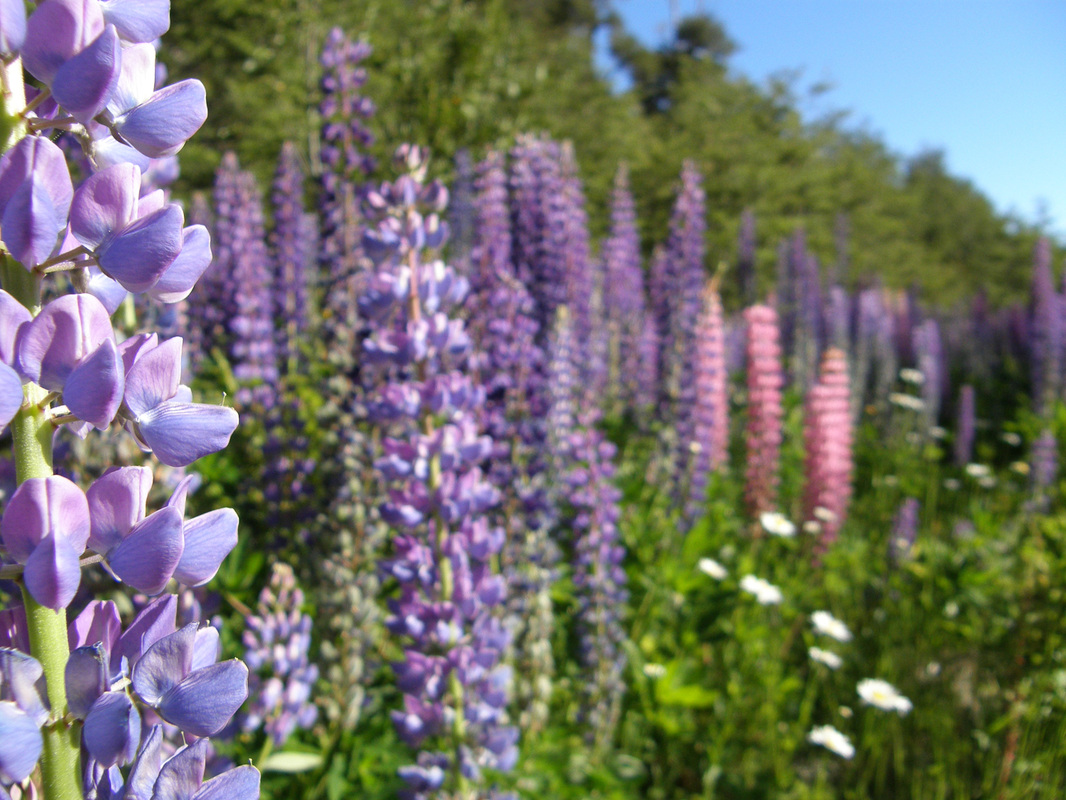Lupin Study
The Project
Adventurers going on hiking or kayaking expeditions near Prince William Sound, Alaska are needed to collect data on lupinus nootkatensis (nootka lupine). This plant is native to the coastal areas of northwestern North America but has been introduced in many areas for gardening and land reclamation. In Iceland, nootka lupine has been widely sown for land reclamation on barren, eroded volcanic material and now grows in monocultures that cover tens of thousands of hectares. Its use for reclamation has become controversial because it invades and dominates communities of native plants. The original seed source for these introductions was the Prince William Sound area of Alaska.
We are seeking seeds from this area so we can examine the evolution of traits during the invasion process in Iceland. For example, a native herbivore in Iceland has shifted hosts to feed on Nootka lupin. We hypothesize that natural selection has favored traits such as rapid vegetation, early reproduction, and loss of seed dormancy – which are especially favorable in a rapidly growing population but which come at the expense of decreased investment in defense against herbivores. This study will help us understand the biology of invasive species and further the potential for biological control. |
How will this data be used?
Seeds from Alaska and Iceland will be grown in a common area and compared for a number of biochemical, morphological, and possible genetic characteristics to help us gain a more in-depth understanding of invasive plants in relation to native plants based upon their different traits.
|
How Can You Participate?
Volunteers will collect ripe pods from 10 individual plants from widely spaced sites around Prince William Sound. With each collection, we will also need three items of information recorded: 1) GPS coordinates; 2) An indication of plant parts being eaten by insects or other animals; 3) habitat (gravel bar, forest interior, forest edge, beach, etc).
|

